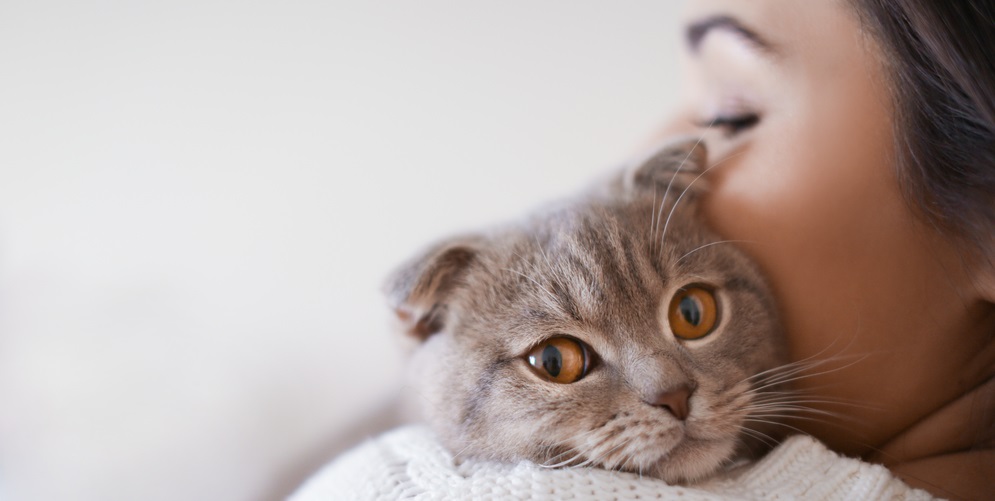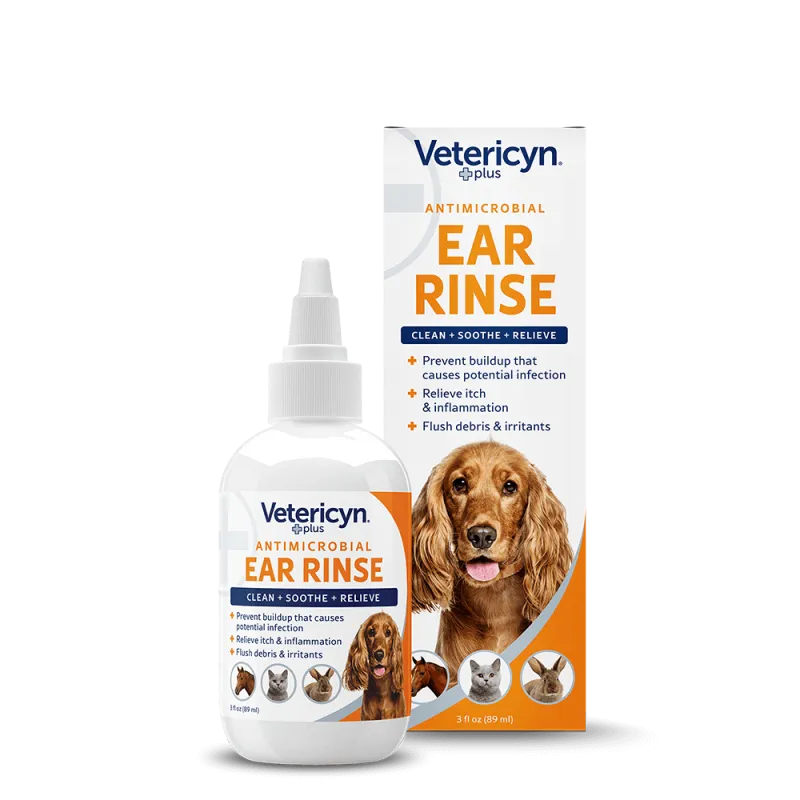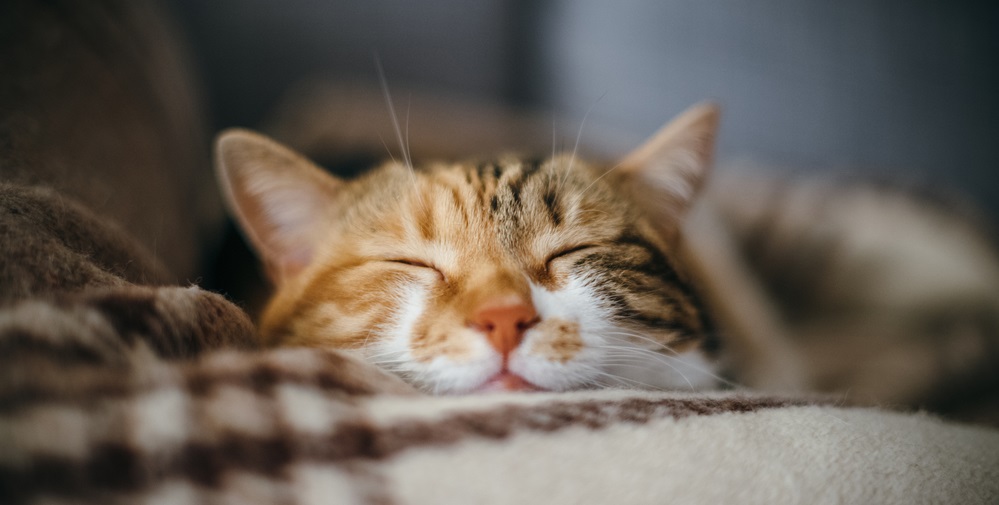Powered by Bestia Europe B.V.
Why Your Cats Ear Smells & How to Treat It...
At the end of a long day, there’s nothing more satisfying than cuddling with your cat… unless nuzzling your face into his gives you a whiff of something less than pleasant. Cat ear smells aren’t just off-putting for affectionate pet owners—those smells might be a sign that something isn’t right in your cat’s health.
If you’re worried about the bad smell around your furball’s ears, you’ve come to the right place.
This article will take you through a range of possible sources for the bad smell—from ear mites to infections—and guide you to the most effective solution to keep your cat smelling fresh and feline fine.
Ear Mites
Creepy, crawly, and common, ear mites are one of the most common causes of feline ear odors. Cat ear mites are tiny parasites that feed on the oil and wax in your pet’s ear, producing a nasty brownish ear discharge that smells about as bad as it looks.
Barely visible to the human eye, ear mites are usually discovered during a cat’s routine vet appointments or spotted during home examinations of the cat’s body (also known as check-up cuddle time). They can also be identified by the bad odor wafting from a cat’s ear.
Other signs of cat ear mites include:
- Excessive ear scratching
- Frequent head shaking
- Hair loss or scabs around the cat’s ears
CAUSES
Ear mites are highly contagious and mobile. Your cat can pick up mites through physical contact with another cat or even a dog.
While outdoor cats are more prone to catching ear mites, they can travel on blankets or toys—so keep an eye on all your cat’s favorite belongings.
TREATMENTS
After your vet has diagnosed your cat with an ear mite infestation, you’ll want to wash any toys, bedding, or fabrics that may have come in contact with the ear mites. After your house has been swept of any lingering mites, it’s time to treat your kitty’s ears.

The treatment process typically consists of:
- Thorough cleaning – You’ll want to clean your cat’s ears of any discharge or debris that could interfere with the treatment. You can use a high-quality ear cleaner to rinse away unwanted particles and give your feline friend the gift of squeaky clean ears. Use an ear cleaning solution that is safe and veterinarian-recommended.
- Topical treatment – After your cat’s ears are clean, a number of topical treatments and drops can be applied to eliminate any remaining ear mites. Typically, it’s necessary to use these medications regularly for a number of days or weeks to ensure all mites are eliminated. No mercy for mites—they messed with the wrong kitty.
- Aftercare – Following your treatment regimen, it’s important to keep up with an aftercare plan. Check your cat’s ears every week or so to make sure the mites don’t return. You can also clean your cat’s ear regularly to keep their canals clear and their ears smelling fresh.
Ear Infections
You heard it here first—the bad smell coming from your cat’s ears may be a symptom of a cat ear infection. Ear infections can cause swelling of the ear canal and, if left untreated, can lead to further health issues for your cat. As soon as you notice a smell coming from your kitty’s ears, treat it like smoke before a fire, and seek out professional help.
CAUSES
While the aforementioned ear mites are known to cause secondary ear infections for unlucky felines, there are a number of other environmental and internal factors that can lead to ear infections in cats, including:
- Foreign objects – If a small object becomes stuck inside your cat’s ear, it can result in an ear infection. Seeds or bits of organic matter might become trapped within the ear canal and remain unnoticed until an infection has taken hold.
- Bacteria or fungus – A small, damp ear canal is prime real estate for bacteria or other pesky microorganisms to fester.
If your cat is dealing with an unexpected ear issue, it may also be a sign of a more serious illness or immune disorder, as cat immune systems are typically strong enough to fight off potential infections. So be sure to consult with your veterinarian about your cat’s ear issues—they can steer you down the right path when it comes to maintaining your kitty’s well-being.
TREATMENTS
To treat your cat’s ear infection, your vet can offer a range of solutions, such as ear drops, oral medications, or injectable antibiotics.
Your vet may also:
- Clip the fur around your cat’s ear to promote drying and healing
- Massage the ear to ensure the medicine reaches the entirety of the infection
- Prescribe a daily medication to prevent chronic infections
Allergies
While allergies to cats are a frequent issue for humans, cats can be susceptible to allergies as well. In fact, another possible culprit for your cat’s smelly ears could be an undiagnosed allergy. In response to an allergen, a cat may experience skin flare-ups or production of unpleasant ear discharge.
CAUSES
Allergies can develop at any time during your cat’s life. Often, they’re caused by external environmental factors, such as:
- Diet
- Plants
- Medications
TREATMENTS
Although it can be difficult to pin down precisely what’s causing your cat’s allergic reactions, identifying any recent changes in diet or environment can help explain the onset of the symptoms.
To combat your cat’s allergies, you can try antihistamines or hypoallergenic food options. And in the meantime, to treat the smelly side-effects, you can thoroughly clean your cat’s ears and administer medication as recommended by your vet.
Keep Your Cat’s Ears Fresh and Clean with Vetericyn
Between parasites, bacteria, and allergens, you might be feeling a little protective of your cat’s sensitive ears. Luckily, Vetericyn Plus® Antimicrobial Ear Rinse makes preventative ear-cleaning both easy and safe.
At Vetericyn, your cat’s well-being is our number one priority. That’s why our products are 100 percent non-toxic and veterinarian approved. For the best in preventive care, from ears to eyes to skin, Vetericyn is committed to keeping your kitten in purr-fect health.
For clean, fresh, odor-free ears, choose Vetericyn today.
Refine by

Vetericyn Plus All Animal Ear Rinse
Vetericyn Plus All Animal Ear Rinse
Remove unwanted substances. Relieves itching and irritation. Cleanses ears and removes odor.
€13,18
Display prices in:EUR

